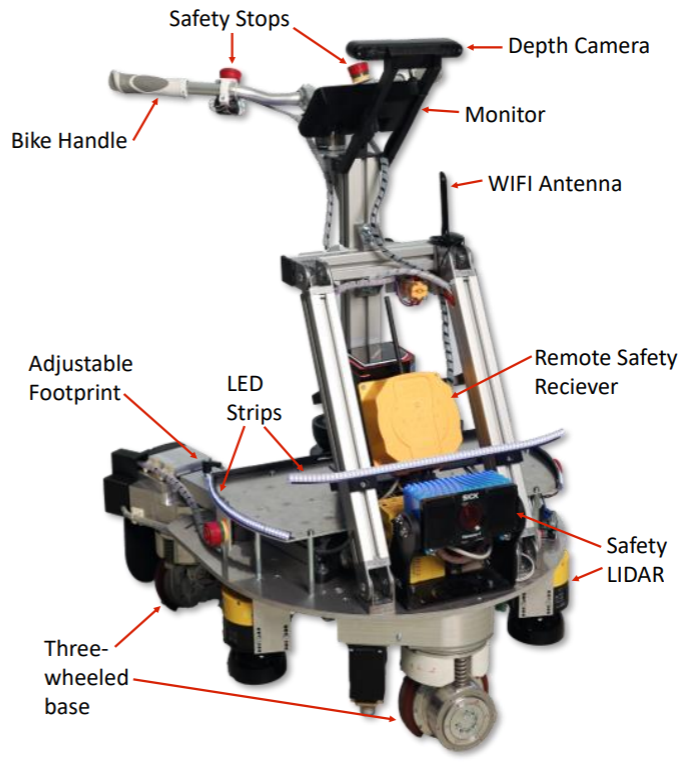Motivation
The graduate school "Accessibility through AI-based Assistive Technology" (KATE) is a new cooperative and interdisciplinary program between the Karlsruhe Institute of Technology (KIT) and the Karlsruhe University of Applied Sciences (HKA). The goal of the doctoral program is to enhance the autonomy and participation of people with disabilities through the use of assistance systems based on artificial intelligence (AI).
The doctoral program covers three subject areas:
- (i) AI-based methods for processing text, audio, and multimedia documents.
- (ii) AI methods for interactive training and assistance systems.
- (iii) Examination of the consequences and ethical, legal, social, and societal implications of AI systems for people with disabilities.
Doctoral projects at IRAS
The Institute for Robotics and Autonomous Systems (IRAS) is currently conducting the following research projects:
Development of an augmented reality-based interactive assistance system to support people with cognitive impairments in production and sales environments.
Complex tasks in production often require high levels of technical expertise and many years of work experience from operators. Augmented reality (AR) can overcome these barriers by providing cognitive support during the learning process of tasks. This project aims to integrate accessibility aspects into the creation and application of AR-based work instructions. Scientifically based guidelines are being derived for the design of user-friendly and barrier-free AR instruction systems for head-mounted displays (HMDs) such as the Microsoft HoloLens 2 (HL2). Additionally, the project explores the "Authoring by Demonstration" approach to automate and simplify the process of creating AR-based instructions.
Contact: Valentin Knoben
E-Mail: Valentin.Knoben@h-ka.de
Interactive training and assistance systems for fall prevention and training in motor and cognitive performance of people with cognitive/physical impairments.
The goal of this project is to design a smart walker with robot-assisted training programs. The training aspects will address motor skills, balance skills, and cognitive performance, providing users with targeted support. The project will involve further technical development of the system, focusing on new control strategies in combination with the establishment of novel training concepts using the existing smart walker, RoboTrainer.
Contact: Andreas Zachariae
E-Mail: Andreas.Zachariae@h-ka.de
